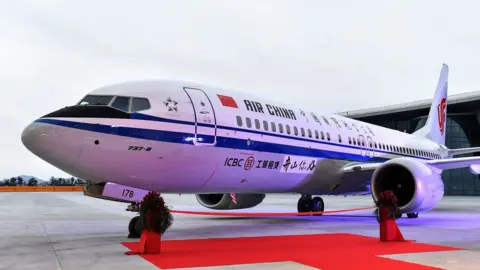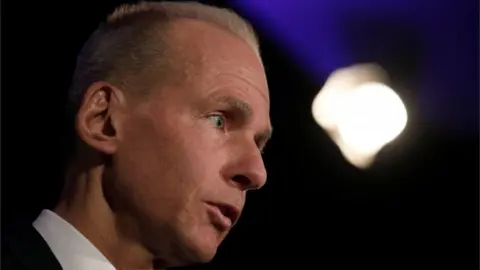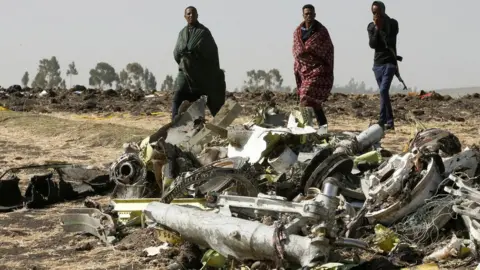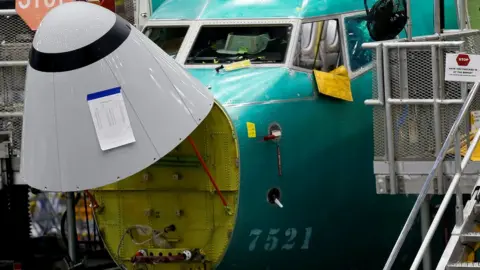Boeing 737 Max: Regulators seek co-operation over plane safety
 Getty Images
Getty ImagesEU transport officials say they will work with other regulators on approving new software for the Boeing 737 Max.
But they say they reserve the right to take their own decision on when to return the jet to service.
It was grounded globally in March after two crashes led to concerns over its new anti-stall MCAS sotfware.
Global airlines are worried that splits between regulators over the plane's safety could further damage the industry and hit passenger confidence.
'Restore order'
The decision by the European Union, China, and others to ground the Max - before the US did so - created an unusual split in the global regulatory system.
 Reuters
ReutersEU Transport Commissioner Violeta Bulc said the European Aviation Safety Agency would take a very close look at Boeing's proposed design changes.
"We always work together with other regulators and we certainly will take joint moves, but EASA will reserve the right to take an individual look at the results and then of course engage with the rest of the regulators," she told Reuters media agency.
There is currently no agreed time frame on the plane's return to service, with Iata saying it was unlikely to take to the skies before August.
 Reuters
ReutersAsked how long it would take to resolve the Boeing crisis, Violeta Bulc said: "I hope as soon as possible because we do need to restore order and trust and move on."
In late May Canadian regulators suggested they may look to work more closely with European regulators, rather than the US Federal Aviation Administration (FAA), on the issue of the 737 Max's safety.
'Trust damaged'
The two crashes - in Indonesia in October 2018 and Ethiopia in March 2019 - killed a total of 346 people.
Until then, airline regulators worldwide generally accepted certifications issued in the country where the aircraft had been built, which in this case was the FAA.
Following the crashes however, it emerged the FAA had delegated part of the certification process for the plane to Boeing, putting pressure on the US regulator.
There is still no broad agreement among global regulators on how and when Boeing's software fixes, which have yet to be completed, will be approved.
 Rex Features
Rex FeaturesAirline trade body, the International Air Transport Association (Iata) is meeting in South Korea for its biggest gathering since the two disasters.
"Trust in the certification system has been damaged - among regulators, between regulators and the industry and with the flying public," said Iata boss Alexandre de Juniac.
"While Boeing and the US Federal Aviation Administration are at centre stage, the close collaboration of counterpart manufacturers and civil aviation authorities around the world are essential," he said.
